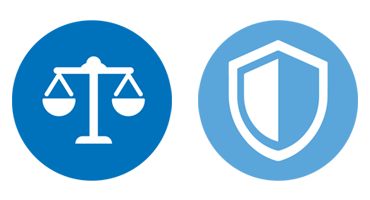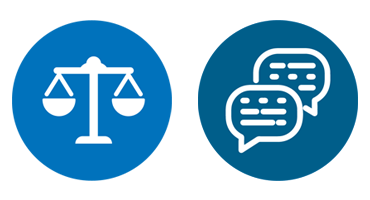Category: Access to justice
Spreading the word about FCEP (Multnomah)
Multnomah County has taken steps to increase the visibility of the Family Court Enhancement Project by making presentations about their activities and experiences at national and regional conferences. These materials provide an overview of the site’s work on the project.
Read MoreSelf-represented litigants: New staff and better written info (Cook)
Like courts across the country, Cook County experiences a high percentage of self-represented litigants, which presents unique challenges when domestic violence is present. The site developed materials to help victims and respondents better understand the process and their options. Also, the help desk did not have any bilingual staff. Cook County is a highly diverse community, and a significant portion of the court’s litigants have limited English proficiency. To meet this need, the court hired a bilingual help desk staff person to assist non-English speakers.
Read MoreParenting time in protection orders: Facilitation and supervised visitation (Cook)
Cook County’s Domestic Violence Division is not a family court accustomed to making custody determinations, but instead a high-volume court hearing protection orders and domestic violence criminal matters. Finding time in busy court calendars to address all of the details involved in creating a parenting plan so that safe, effective child-related relief can be included in protection orders was therefore a challenge. Two innovations proved to be immensely helpful: a newly created position called the expediter, which operates in many ways as a domestic violence-informed mediator, and a supervised visitation liaison.
Read MoreTraining on custody and domestic violence, trauma, empathy, and other topics (Multnomah)
One challenge identified by Multnomah County was to improve the capacity of the court and court-related professionals to make informed recommendations and decisions regarding parenting time and custody in cases with domestic violence. Training for all family court practitioners was therefore a key activity. Programs were targeted for judges, court staff, custody evaluators, mediators, attorneys, advocates, therapists, and others, both as individual groups and in multidisciplinary presentations. Evaluations immediately following the programs were favorable, and anecdotal evidence indicates that participants are using the information from the trainings in their work. Additional data on the programs’ utility will be gathered in the next several months. Materials from several of the programs are below.
Read MoreSelf-represented litigants: Navigator, videos, and resources (Multnomah)
A primary challenge identified during the planning phase of the project was that survivors lacked the information needed to make informed choices and lacked necessary support to seek... Read MoreTraining for all disciplines on domestic violence and child custody (Hennepin)
A key challenge identified by the Hennepin County team was inconsistency among all family court practitioners in identifying domestic violence, assessing it adequately once identified, and properly accounting for it in parenting plans. Another challenge was survivors’ lack of information needed to access available relief. As part of the efforts to address these challenges, the team developed a training program for all family court practitioners: judicial officers, guardians ad litem, mediators and early neutral evaluators, custody evaluators, self-help center staff, advocates, and attorneys. Several trainings in multiple formats were conducted to reach as many people as possible. A central piece to the practitioners’ training was the SAFeR Framework (formerly the Custody Framework) developed by the Battered Women’s Justice Project (BWJP), which provides a useful analytical and decision-making tool in custody cases involving domestic violence. Training on the Framework was provided in multiple formats to multiple audiences, including a training for attorneys and advocates, a training for new judges, and a multidisciplinary webinar. BWJP is constantly updating the training materials, so for more information or to request assistance with a training in your community, please see their website or use the Contact link above.
Read MoreSurveys and roundtables (Hennepin)
Challenges identified by the project team included a lack of accurate identification of domestic violence by family court practitioners and survivors’ lack of understanding and information regarding family court procedures, available relief, and governing law. Another challenge concerned the inconsistency in court orders around the intersection of domestic violence and custody, both in the inclusion of child-related relief in protection orders and in properly accounting for domestic violence in divorce and custody cases. To better assess these gaps and their impact, the site conducted several roundtables with different practitioner groups as well as survivors, and the bench and family law bar were surveyed to gather more data about the scope of these issues and to inform the development of possible solutions.
Read MoreSelf-represented litigant info on protection orders and child custody (Hennepin)
Most litigants in family court, in Hennepin County as in the rest of the country, do not have lawyers and instead represent themselves. The team identified litigants’ lack of information and understanding about family court procedures as one of the challenges for the project. To help address this gap, Hennepin County created a series of materials designed to help litigants understand court processes and present their cases in the best way possible.
Read More




